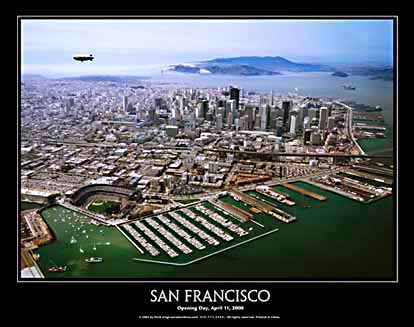...
He is not like you and me. He is that certain, most dangerous kind of crazy that includes both the careful, practical calculations of a corporate accountant and the willingness to push in all his chips on instinct of a riverboat gambler. He's fully aware of the stakes in this game he's playing - he has very few friends left in the world and to end his days in comfortable exile is not something I believe he'd consider an acceptable outcome. It's win or go home for the wacky Libyan Colonel, but in this case the only home he has left is a martyr's grave.You're simply not being realistic if you think he's somehow unaware of this. When the world was cautiously discussing a limited no-fly zone over Libya, Gadhafi poured gasoline on the fire when he said they would go house to house, that there would be no mercy. There were so many other ways he could have played it, acting concilliatory, playing for time, all while he brutally rolled up the rebels, destroyed their fledgling organizations and murdred and imprisoned their families. That might have been Saddam, that might have been Mubarak, but if we've learned one thing since the Gulf of Sidra, it's that simply isn't Moammar Gadhafi.
In general, the US has a counterproductive tendency to personalize a geopolitical argument, to make it about the leader, to focus on Saddam Hussein or Ayotollah Khomeini instead of the political, military and economic goals. But in this case it's the right course. Because now that we're engaged, now that we've called his bet, it's desperately important that we understand that we're NOT dealing with a government, there is no diplomatic structure or back-channel conversation to be employed to find a way out of this. There's just the mad Colonel, and the people around him who's lives and livelihood depend on him, and now they are staring into the abyss and he's the best chance they've got.
There was one chance that he might be persuaded to stand down and accept exile - and that would be if he believed there was some chance of a comeback, that he would have the flexibility and freedom of movement to attempt to depose the new leadership and regain power over Libya. But now, the gloves have come off, and while he's very definitely not right in the cabeza, he's not crazy enough to believe that he has any choice other than execution in Libya or a cell in The Hague.
So here's what's most likely to happen. The first part of the end-game will be defections. LOTS of defections. The writing is on the wall now - he can't deploy armor and artillery against the rebels, it's all small arms and hand to hand, and there's just no way he can take back the Eastern part of the country without the mobility and firepower he's now being denied. But those who do NOT defect will represent a powerful and quite desperate force, and the rebels will find it difficult to force them out of Tripoli. And if the rebels get their hands on the tanks and artillery, are we then expected to stand down and let them slaughter their fellow Gadhafi - supporting Libyans when our very mission statement is that we intervened to protect civillians?
The easiest solution is if one of those defectors can kill him or hand him over to the rebels - then the regime just fades away as the remaining elites scurry for cover with whatever they can loot from the treasury, banks and museums. If that is to happen, it will happen this week and it will go down as the shortest, least lethal and most successful international humanitarian intervention in history. But if we're still having this conversation NEXT weekend, with Gadhafi still ensconced in Tripoli and the rebels getting organized and moving west, well, this is just going to get a LOT harder.
And here's the key part to remember. You never know if the man holding the gun will pull the trigger. But with Colonel Gadhafi, we DO know. We've known since Flight 103 landed in pieces in the peaceful Scottish countryside. That's the crazy side, and make no mistake - he WILL deploy it. The question is simply this: how many weapons, anti-ship missiles, MANPADS, sea mines, whatever his fevered imagination can come up with and his oil wealth can purchase, does he have stashed away for his own final Armageddon? What desperate plans has he put in motion already? At this point, he really must believe that his only hope is to make the cost too high - a kind of a third-party war of attrition where the cost is borne at random by those in the region.
There's no doubt he'll try it. This HAS to end quickly. A protracted standoff could get terribly bloody...
....



